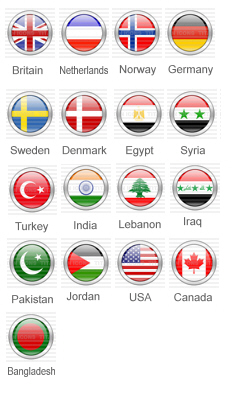International Resource Centre
Challenges
Lack of accurate data
HBV may be widely discussed but there is little current accurate national or international data on the levels of such crimes. While many NGOs report that the level is rising, there is little information on the distribution of HBV either geographically or over time. Given that the nature of HBV is secretive, and that there may be a conspiracy to conceal crimes, it is likely that most existing figures are underestimates.
Lack of understanding
Professionals and public sector workers may lack a detailed understanding of HBV, and fail to detect, record or respond to the phenomenon appropriately. Police and other first points of contact may misrecognise the nature of crimes and abuse with a relationship to ‘honour’ and fail to act, or categorise them as domestic violence without fully comprehending their ideological and collective basis. There is a pressing need for training in this area to enable potential first responders to identify and react appropriately to cases of abuse in which ‘honour’ plays a part.
Lack of trust in the state
Women from backgrounds where the police are less equipped or willing to address violence within the family have different expectations and thus not identify the police as helpful agents who will help them deal with their problems. Trust may be particularly low if a woman comes from a region where the police cannot be trusted to treat ‘honour’ crimes or other forms of violence against women seriously. This is excaserbated where a woman has an insecure immigration status: families may give the impression that contact with the police will result in deportation leading to reluctance to report abuse to any authority.
Cultural barriers to reporting risk
Women may be fearful of reporting to the police due to a general cultural position that family matters are private. Women who have internalised the ‘honour’ code but then find themselves persecuted as offenders against that code may not consider themselves as victims, but feel themselves to be guilty of an offence.
Remote murders
In some cases, victims of honour crimes may be persuaded or deceived into a trip to their home country, where there is less support available, and the police are inefficient, complicit or corrupt so that the crime can be carried out with impunity.
Silence
A major barrier to detection and prosecution is the ‘wall of silence’ within the community, where few people will testify or report to the police, following a cultural belief that crimes against women are private family matters. This also means that there is unlikely to be reports of risk from anyone aside from the victim herself.
Professional killers
In some communities, there exist professional agencies dedicated to tracking down and returning young people who have run away from home. It may also be easy to hire an individual to act as a hitman where there are people living outside society due to their immigration status who have no other means of making money. In the UK, it has been estimated that some 1 in 8 ‘honour’ killings are committed by a paid killer outside the family. If a family has hired a professional killer this represents a determination to kill and a high level of risk to the potential victim.
Child killers
Some families seeking to kill a person in areas where ‘honour’ killings are treated as murder have resorted to persuading or coercing a minor male relative to commit the act so that sentencing will be shortened on the account of age. This constitutes a crime against both parties: the child who has been forced to kill a relative, and the murder victim herself.
Lack of support to NGOs
NGOs specialising in women’s issues are often the most effective and knowledgeable resources in providing help and assistance, particularly where these are able to provide help and advocacy with cultural sensitivity and an insider’s knowledge of ‘honour’ crime. However, these are often underfunded and understaffed and may struggle to maintain their services.
Cultural relativism/fears of being accused of racism
It has been a touchstone of multiculturalist thought that all cultures must be respected. While HBV and forced marriage are strongly associated with minority cultures, this does not mean that HBV and forced marriage should also be treated as if they were neutral aspects of immigrant culture. They are, first and foremost, crimes and violations of human rights and must be treated as such. Victims and survivors of ‘honour’-based violence and forced marriage are also members of the same minority communities, and it is invidious to assume that their family’s supposed ‘cultural’ motivation to commit crime outweighs their own right to determine their own lives. It is not racist to prevent a crime, or protect a vulnerable person – however, it may indeed be racist to fail to support a person in need of protection on the basis of her or his culture, or the culture of her or his parents.

